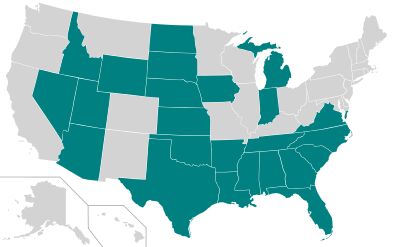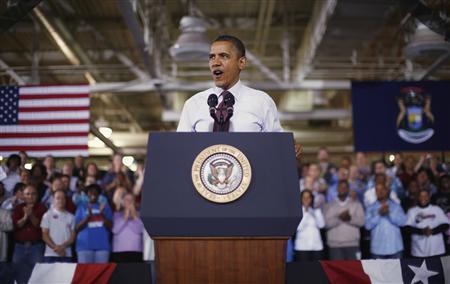#RightToWork
Ford UAW Members Meet To Receive Info On Leaving Union
UAW members at Ford’s Sterling Heights, Mich. plant met to gain advice on how to leave the union or stop paying dues under Michigan’s new right-to-work law.
UAW Faces Right-To-Work Laws in Kentucky Counties
States with right-to-work laws are in green. Wikipedia graphic.
Organized labor has had setbacks as states formerly seen as union strongholds in the industrial midwest, Wisconsin and Michigan, have enacted right-to-work legislation that makes paying union dues voluntary. Now, the United Auto Workers, which has been trying to organize autoworkers at ‘transplant’ facilities operated in the American south by foreign automakers faces the prospect of dealing with right-to-work laws at the county level, in Kentucky. The new laws present the autoworkers’ union with a double whammy.
Employee Files Charges Against UAW, Ford Over Dues
Though it won’t be until next September when Detroit Three employees in Michigan will be able to opt-out of paying dues to the United Auto Workers, one Ford employee has gone ahead with legal action to recoup some of his dues now.
Obama Trash Talks About Right To Work
President Obama joined the debate about Michigan’s “right-to-work” law. “What they’re really talking about is giving you the right to work for less money,” Obama told workers during a visit to the Daimler Detroit Diesel plant in Redford, Michigan. He forgot to mention three important items.
Soon, The UAW Might Call A Right To Work State Home
This is going to be interesting: Michigan lawmakers are expected to introduce right-to-work legislation today, Michigan’s Republican Governor Rick Snyder is for it, the UAW, headquartered in Detroit, Michigan is fiercely against it.

















Recent Comments